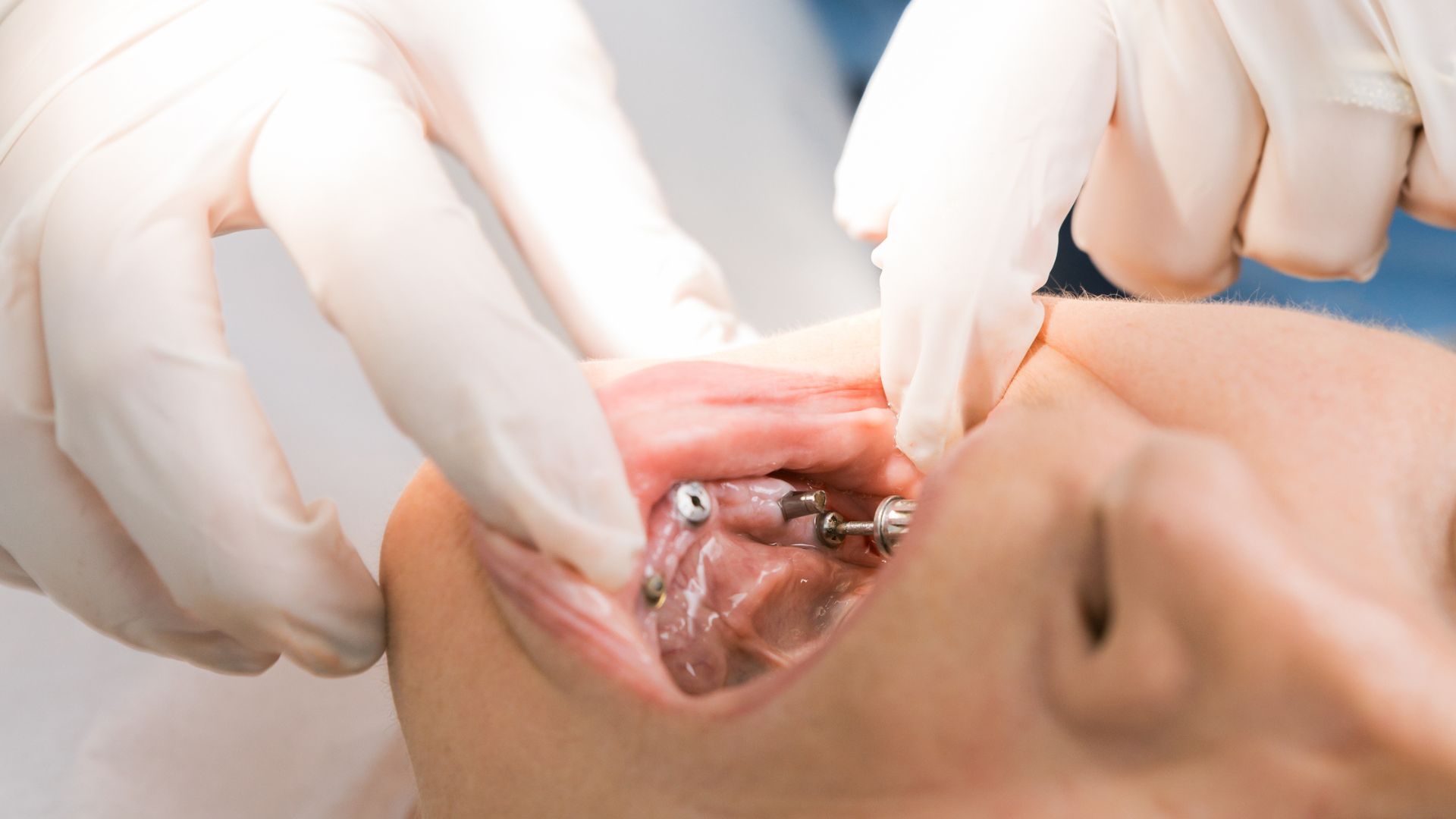- Location: Tirana, Albania
- Mon - Fri: 8:00 - 19:00
Plants
Dental Implant in Albania: Procedure, Costs and Maintenance

Dental implants are a revolutionary solution to replacing missing teeth, offering a long-lasting and natural-looking alternative. This dental implant technique in Albania has transformed the field of dentistry, allowing patients to regain the functionality and aesthetics of their smile. Endosseous implants, anchored directly into the jawbone, provide a stable base for crowns, bridges or removable dentures.
This article explores in detail the procedure of dental implants in Albania, from the preliminary steps to the post-operative period and final prosthetics. The different types of implants available are analyzed, such as post-extraction and immediate loading implants, as well as bone regeneration techniques when necessary. Practical aspects such as the costs of dental implants in Albania and their long-term maintenance are also addressed, to help patients make an informed decision about this important treatment option.
Preparation for surgery
Before proceeding with Dental implant in Albania, a thorough clinical evaluation is necessary. The dentist takes a detailed anamnesis to rule out contraindications such as severe diabetes or coagulation problems. Diagnostic tests, including panoramic X-rays and 3D CT scans, are performed to assess the quality and quantity of the bone. A professional oral hygiene session is essential to remove plaque and tartar, creating a clean environment for the procedure. The dentist may prescribe antibiotic prophylaxis, usually with amoxicillin, to be started shortly before the procedure. In case of allergies, alternatives are considered. A cortisone may be administered to prevent post-operative swelling. These preparations are essential to ensure the success of the dental implant in Albania and minimize risks.
Phases of the implant procedure
The intervention of dental implant in Albania begins with local anesthesia to ensure patient comfort. The surgeon makes a small incision in the gum to expose the underlying bone. Using specialized instruments, a hole is created in the bone to the size of the implant. The titanium screw is then inserted precisely into the prepared hole. This process requires extreme care to ensure proper placement of the implant. Once the implant is inserted, the gum is sutured. The stitches are usually removed after 7 to 10 days. A period of osseointegration follows, during which the bone fuses with the implant, creating a stable base for the future dental crown.
Post-operative period
After the intervention of dental implant in Albania, it is normal to experience some discomfort. Swelling of the cheek and gums may persist for about a week. To reduce inflammation, it is recommended to apply ice to the affected area for 15 minutes every hour. It is essential to follow the antibiotic and painkiller therapy prescribed by the dentist to prevent infections and manage pain. Oral hygiene requires particular attention: it is recommended to use a mouthwash containing chlorhexidine and to avoid brushing the treated area until the stitches are removed. The diet should be cold and soft for at least a week, favoring foods such as yogurt, ice cream and warm soups. It is important to avoid intense physical activity and abstain from smoking to promote proper healing.
Osseointegration and prosthetics
Osseointegration is a crucial process for successful dental implants in Albania. This phenomenon occurs when the jawbone fuses with the titanium implant, creating a solid structural connection. The process takes 3 to 6 months to complete and occurs in four distinct phases: hemostasis, inflammation, proliferation, and remodeling. During osseointegration, the implant becomes one with the surrounding bone, providing a stable base for the prosthesis. The quality and quantity of the bone significantly influence this process, with the jawbone generally requiring less time than the maxillary bone to integrate the implant. Once osseointegration is complete, the prosthesis is placed, which can be fixed or removable, depending on the patient's needs.
Conclusion
Dental implants in Albania are a cutting-edge solution for replacing missing teeth, offering both functional and aesthetic benefits. The procedure, from preparation to surgery to the final prosthetic, requires time and attention, but the results are long-lasting and natural. Regular maintenance and good oral hygiene are essential to ensure the long-term success of the implants. For those considering this option, it is advisable Make an appointment with Go Health Albania clinic for professional advice.
Ultimately, dental implants in Albania have a major impact on the quality of life of many patients, giving them back a functional and beautiful smile. While the initial investment may seem significant, the long-term benefits in terms of oral health and overall well-being are significant. With proper care and regular checkups, dental implants can last a lifetime, making them an excellent choice for those seeking a permanent solution to tooth loss.
Free Consultation
International experience. Thousands of patients from 5 continents, over 20 countries and more than 8000 patients treated.

